Wheel Bolt Pattern by Make and Model
POLARIS Model(s):
250 SCRAMBLER ~ 250 TRAIL BLAZER ~ 250 TRAIL BOSS ~ 250 XPLORER ~ 250X CYCLONE ~ 300 ~ 300 BIG BOSS ~ 300 HAWKEYE ~ 300 XPLORER ~ 300 XPRESS ~ 325 MAGNUM ~ 325 TRAIL BOSS ~ 325 XPEDITION ~ 330 MAGNUM ~ 330 SPORTSMAN ~ 330 TRAIL BLAZER ~ 330 TRAIL BOSS ~ 335 SPORTSMAN ~ 350L BIG BOSS ~ 350L TRAIL BOSS ~ 400 SPORTSMAN ~ 400 TRAIL BLAZER ~ 400L ~ 400L BIG BOSS ~ 400L SCRAMBLER ~ 400L SPORT ~ 400L SPORTSMAN ~ 400L XPLORER ~ 400L XPRESS ~ 425 RANGER ~ 425 XPEDITION ~ 425L MAGNUM ~ 450 SPORTSMAN ~ 460 DIESEL ~ 500 MAGNUM ~ 500 OUTLAW ~ 500 PREDATOR ~ 500 RANGER ~ 500 SCRAMBLER ~ 500 SPORTSMAN ~ 525 OUTLAW ~ 600 SPORTSMAN ~ 700 RANGER ~ 700 SPORTSMAN ~ 800 RANGER ~ 800 SPORTSMAN ~ All POLARIS Model(s)
POLARIS Bolt Pattern(s):
4 X 156 ~ All POLARIS Bolt Pattern(s)
POLARIS Wheel Size(s):
10 X 5 ~ 10 X 8 ~ 12 X 7 ~ 9 X 9 ~ All POLARIS Wheel Size(s)
POLARIS Models / Bolt Pattern and Wheel Size Information:
Additional Wheel / Bolt Pattern Measurement Information
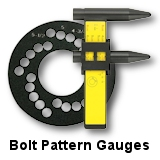 Key Identifying Wheel Dimensions: Wheel Bolt or Lug Pattern (or bolt circle, lug circle, lug pattern, etc.) is the measured diameter of an imaginary circle formed by the centers of the wheel lugs or bolt holes. Bolt patterns can be 3, 4, 5, 6, 7, 8 or 10 lug holes. A bolt circle of 5 x 4.5 would indicate a 5 lug bolt pattern on a circle with a diameter of 4.5 inches.
Key Identifying Wheel Dimensions: Wheel Bolt or Lug Pattern (or bolt circle, lug circle, lug pattern, etc.) is the measured diameter of an imaginary circle formed by the centers of the wheel lugs or bolt holes. Bolt patterns can be 3, 4, 5, 6, 7, 8 or 10 lug holes. A bolt circle of 5 x 4.5 would indicate a 5 lug bolt pattern on a circle with a diameter of 4.5 inches.
Wheel Dimensions
There are four important measurements that are used to categorize and identify a wheel for fitment purposes.
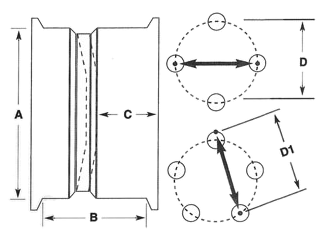
- Rim Diameter The actual diameter of the wheel at the point where the tire bead seats (NOT the outer lip of the rim).
- Rim Width Measure from the inside of the outer lip at the bead seating point to the inner lip.
- Back Spacing From the inside of the wheel at the point where it contacts the hub, brake drum or axle flange to the inside edge (lip) of the wheel.
- Bolt Pattern The measured diameter of an imaginary circle formed by the centers of the wheel lugs or bolt holes.
How To Measure Wheel Bolt Pattern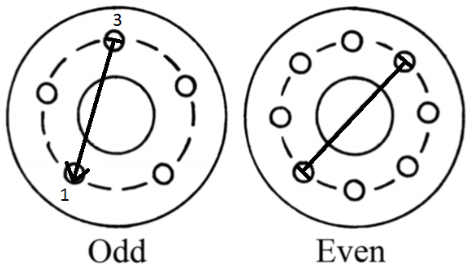
If there is an EVEN number of lugs: Measure center-to-center on lugs directly across from each other.
If there is an ODD number of lugs: Measure from the CENTER of one lug to the OUTER EDGE of the hole diagonally across from it.
Lug Nut Types
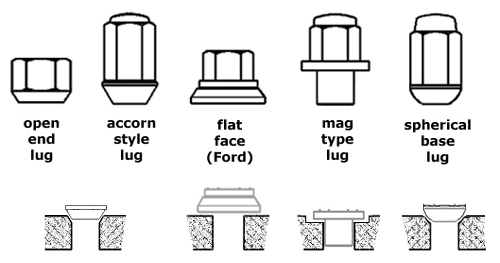
Bolt Pattern Torque Sequence / Specifications:
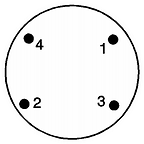
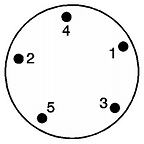
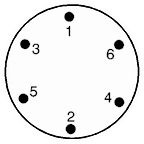
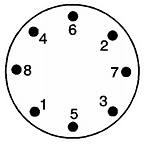
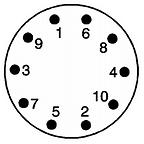
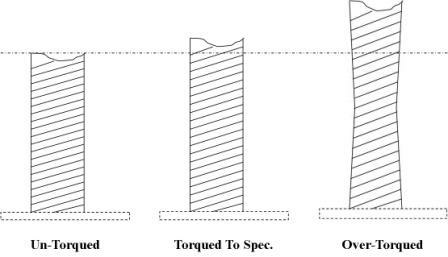
| Stud Size | Typical Torque Range in Ft/Lbs | Minimum Thread Engagement (turns) |
| 12 x 1.5 mm | 70 - 80 | 6.5 |
| 12 x 1.25 mm | 70 - 80 | 8 |
| 14 x 1.5 mm | 85 - 90 | 7.5 |
| 14 x 1.25 mm | 85 - 90 | 9 |
| 7/16 in. | 70 - 80 | 8 |
| 1/2 in. | 75 - 85 | 8 |
| 9/16 in. | 135 - 145 | 8 |
Alloy wheels should always be installed using a torque wrench ensuring proper mount. Check your vehicle owner manual for specifications. Learn More: How To Properly Torque Lug Nuts / Lug Bolts
Hub Center Bore
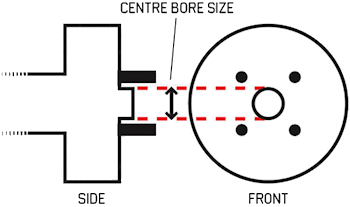 Hub Center Bore: Relates to the center hole in the wheel that centers the wheel on the hub of the car. Since most wheels are mass produced, they have a large center bore to accommodate several different vehicles. If this is the case, it is recommended that you use a hub ring. Hub rings are hard plastic or metal ring that fits between the wheel and the vehicle. This centers the wheel perfectly on the hub ensuring that there is no run out when the wheel is installed on to the vehicle. Without hub rings it is possible to get vibrations even if the wheel / tire assembly is perfectly balanced.
Hub Center Bore: Relates to the center hole in the wheel that centers the wheel on the hub of the car. Since most wheels are mass produced, they have a large center bore to accommodate several different vehicles. If this is the case, it is recommended that you use a hub ring. Hub rings are hard plastic or metal ring that fits between the wheel and the vehicle. This centers the wheel perfectly on the hub ensuring that there is no run out when the wheel is installed on to the vehicle. Without hub rings it is possible to get vibrations even if the wheel / tire assembly is perfectly balanced.
Wheel Offset
Wheel offset is the distance from the mounting surface of the wheel to the true center line of the rim. A positive offset means the mounting surface of the wheel is positioned in front of the true center line of the rim / tire assembly. This in effect brings the tire in to the fender well more. Conversely, a negative offset means the mounting surface of the wheel is behind the true center line of the rim / tire assembly. This will cause the tire to stick out away from the vehicle.
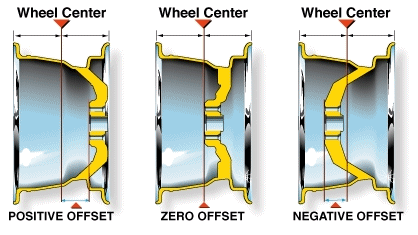
H = High - Positive Offset, typically FWD (Front Wheel Drive) +45, 40, 35 offsets
M = Medium - Neutral Offset, typically RWD (Rear Wheel Drive) +20 offset
L = Low - Zero to Negative Offset, Offset typically RWD (Rear Wheel Drive) 0 offset
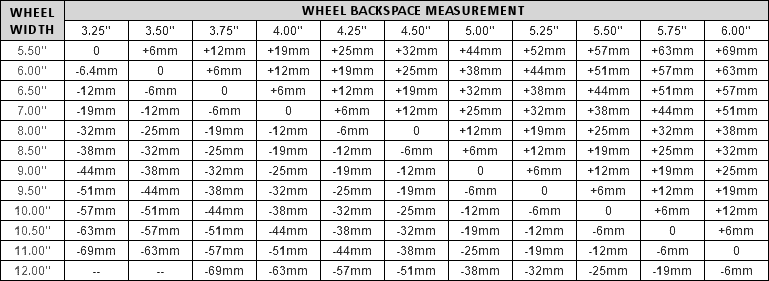
Common Bolt Pattern Conversions
This information is accurate to the best of our knowledge. No warranties or guarantees are expressed or implied as to the accuracy of the information provided on this site. Use of this site constitutes your agreement to these terms.
See Also:
- How to Measure Bolt Pattern Bolt pattern - diameter of an imaginary circle formed by the centers of the wheel lugs.
- Wheel Lug Nut / Bolt Torque Sequence Correct Wheel Lug Nut / Bolt Torque Sequence - 4 lug, 5 lug, 6 lug.
- How to Measure Wheel Back Spacing This measurement is important to be sure you have proper wheel clearance.
- How To Read A Tire Sidewall Learn to understand the common markings found on tire sidewalls.
- How To Plus Size Your Wheels
- Wheel, Tire and Fender Fitment Calculator Calculate Wheel Fitment, Tire Stretch and Rolling Radius. Includes Speedometer Error Calculator. Play with specs, try different settings and combinations, compare results.
- Tire Size Change / Speedometer Calibration Calculator This calculator is designed to give information related to tire size changes and the general impact they have on the calibration of a speedometer. It determines speedometer error and tire size information based on published and generally accepted tire dimensions as given by the standard US tire system (i.e. 205/45-ZR16). All calculations are based on the assumption of a new tire (as opposed to used) where the numbers on the tire accurately represent the dimensions.

